 Jews probably lived in Afghanistan since they were freed from captivity in Babylon and maybe before. Silver coins from the Graeco-Bactrian satraps (circa 200 BC to almost the time of Christ and still available for a few dollars each in the Kabul bazaars) are written in Classical Greek on the obverse and on the reverse in Aramaic, the language of Jesus and of commerce through the caravan trade eastwards from the Holy Land, across Iraq and Iran into Afghanistan and modern day Pakistan.
Jews probably lived in Afghanistan since they were freed from captivity in Babylon and maybe before. Silver coins from the Graeco-Bactrian satraps (circa 200 BC to almost the time of Christ and still available for a few dollars each in the Kabul bazaars) are written in Classical Greek on the obverse and on the reverse in Aramaic, the language of Jesus and of commerce through the caravan trade eastwards from the Holy Land, across Iraq and Iran into Afghanistan and modern day Pakistan.
In the 19th Century and maybe still, many Afghans believed that they were themselves Jewish and that the Pushtoons are one of the Lost Tribes of Israel: some scientists now talk of a mitochondrial DNA backtracking experiment to see if the legend is true. From my own somewhat limited and not very scientific researches, both Jews and Pushtoons have strong family and ethnic bonds, are reassuringly traditional, uncommonly warm-hearted, and at the first sign of a friend’s sniffles trot out steaming bowls of delicious chicken soup. That’s proof enough for me, Philosemitic and an Afghanophilic in equal measures.
But back during the Soviet invasion, deep inside Afghanistan with the anti-communist mujahideen, my friend Rachel was more than just a little discomfited when the Muslim resistance commander repeated her surname quizzically and asked if she was Jewish.
Still an old friend from the Reagan Era, Rachel and I worked in Washington on the cusp of political speechwriting, conservative activism, and journalism. Then she came to visit me in Peshawar, determined to ‘go inside’ meaning to travel into Afghanistan with the anti-communist warriors and to report back to a prominent Midwestern newspaper. My friends and I introduced her to a responsible, moderate party of freedom-fighters who generally kept a sensible distance away from the bloodshed, and early one morning a band of them turned up at my house to smuggle her past the Pakistani authorities and escort her into Afghanistan. Then they collapsed in fits of giggles, as Afghans sometimes do.
Excited and raring to go, she had dressed up like Dan Rather and the rest of the international press-corps in shalwar-kamiz, the long nightshirt and baggy trousers worn in those days by virtually all Afghan men. But the beautiful Rachel did not look remotely masculine and her feminine attributes could not possibly be masked by mere garments. From fierce-looking, grizzled warriors to beardless boys, they giggled helplessly and explained that she would need to dress in a burqa like an Afghan woman travelling. She grew upset, explaining that were she unable to dress like a mujahid and get her photograph taken on top of a burned-out Russian tank, her credibility would be shot and her journalism career would be in tatters. The Afghans explained that once they were in liberated Afghanistan she could engage in as much cross-dressing as she liked, but first they had to sneak her past the irksome Pakistani officials. So, they put her in a burqa, stuck a four-year-old child on her lap to make it all the more convincing, and motored off to the border.
As I had hoped, her trip was photographically rich but militarily uneventful, and back in the burqa she returned a week later. At the border trouble struck. A Pakistani border guard awoke long enough to inspect the pickup truck and rifle his way, pro forma, through a random knapsack that just happened to be hers. He fished out a feminine undergarment thought to be unknown in those border regions, held it up in the air and called for his cousins to investigate. As they discussed where this contraption might be deployed on the female anatomy–no challenging task I would have thought–the Afghan commander cursed under his breath: if they found his foreign guest, it would cost him a bribe, he would be late for dinner, and his wife would be quite displeased. So, out of the passenger’s seat he unfolded himself to his full six feet and more, walked back to the Pakistanis in his best John Wayne swagger and drawled, “That stuff is mine, pilgrims, and I don’t want to hear anything about it.” The smaller Pakistanis looked up at the burly Afghan and began grovelling and saluting as they stuffed the garment back into the knapsack. It is said that in those remote border areas Pakistanis still talk about the mighty Afghan holy-warriors who defeated the Red Army while wearing foreign women’s fancy underwear.
Rachel so enjoyed her trip that she went again, this time with a band led by General Rahmatullah Safi, a former brigadier in the old royal army who had even studied at Sandhurst, the British version of West Point. He resembled a more handsome version of Montgomery of Alamein, with a small, white, crisp, and very dapper moustache, wearing his pakhoul, the rolled-up Afghan cap, at a jaunty angle like a beret. The old boy cut quite a figure, but it was several days’ walk deep into Afghanistan when he asked if she was Jewish. Nice guys indeed, she recalled, but she was still a single Jewish American girl in the middle of nowhere surrounded by Islamic holy warriors, and she was not fully certain of their reaction. Ever honest and brave, she swallowed hard and said, yes, she was Jewish. The brigadier barked something at his men who turned and stared at her. Then a simple-minded mujahid began to skip about chanting, “Yehudi! Yehudi! Al hamdillulah, Yehudi!” (roughly, “Jewish! Jewish! Thank God she’s Jewish!”). The other men broke into big Afghan smiles and Safi explained.
“Mostly, these people worry that our foreign friends are atheists. We tend to think that is not a good thing. Civilised people should believe in God,” he began. “I told them you are a Yehudi, a Jew, and they are relieved and delighted. We worship the same true God, share many of His Prophets, and we Afghans respect Jews and Christians whom we call People of the Book. It is a major commandment for any good Muslim.” Rachel said that outside of America and Israel she rarely felt so welcome anywhere in the world.
That night around the campfire, the brigadier recounted a training course he took at Sandhurst a decade before. “I was the only Afghan, but there were Saudis and Omanis, Syrians, Egyptians, Iranians and Pakistanis and so forth. On the first morning at breakfast, one fellow was sitting all alone. He was alone at lunch too, so I asked if I could join him. We Afghans are trained to be hospitable.” It turned out that the thoughtless organisers had invited military officers from halfway across the Muslim world, plus one Israeli colonel.
“He seemed like a nice fellow,” Safi recalled, “but after lunch the Saudis demanded to know how I could call myself a Muslim and eat with that so-called dog of a Jew. That bloody well did it and after that I ate every meal with the Israeli, partly on principle. We became friends of course, and then our wives became friends when the Israeli couple stayed with us in London, and when we get the chance for a holiday we hope to visit them in Tel Aviv. Besides,” the old brigadier snorted, “we Afghans don’t like Saudis. All arrogance and false piety. Uncivilised. No sense of how things are done, don’t you know.”
Several years later in Kabul, my engineers and I crowded into a CARE International jeep and motored off to one of our projects restoring piped water to a half a million souls while warlords fired rockets overhead. In Carte Parwan, a rather pretty district thick with towering fir trees, Engineer Taj Mohammad Sharif (Engineer is a title there, like Doctor, for Afghans venerate the educated) pointed out a whitewashed, clapboard, deserted building as one of the city’s synagogues.
There were few Jews left anywhere in Afghanistan. When the bloodthirsty communists, Taraki and Amin, seized power in 1978, the Jews fled the cultured, western city of Herat helped by the Israeli government. During the Soviet occupation, the indigenous communist interregnum and the civil war that followed, the rest of the Afghan Jews decamped, usually to Israel, until even Kabul lacked a minion: only two old Jews remained and not on speaking terms with one another.
Steve Levine, a good-hearted man then a genuine hot-shot reporter for Newsweek, barrelled up to Kabul as soon as the communists were ousted, to interview one of the final two Jews there, Daoud (David) Levi. I don’t think that the Californian reporter was enormously observant but he said that he was overcome with co-religious camaraderie as he began to interview the grumpy old man. “Isn’t it exciting?” he demanded. The old man scratched himself, gave his interviewer a sour look and muttered, “Not really.” Steve pushed on enthusiastically, explaining that–wow–here they were, an American Jew and an Afghan Jew and both Levites no less. The old man adjusted his dentures and answered laconically, “So?” The journalist took another tack: did he want to go to Israel one day, home to virtually all the Jews of Afghanistan and Jewish people from all over the world? “No,” answered the old man tersely, followed the kind of long pause so unpleasant to reporters. (“This was not my best interview,” Steve recalled.) Finally, Mister Levi spoke again: “I’m an Afghan. If I wanted to live in someone else’s country, I’d be there now, wouldn’t I?” He made a kind of harrumphing sound to signify that the interview was over.
As we passed the synagogue, Engineer Sharif watched it with a look of genuine pain. “They were us. The Jews were us,” he whispered. “They were Afghans as much as any one of us. They lived here for thousands of years. They had Afghan bones and Afghan blood but we Muslims failed them. We let them grow frightened as the political groups fought one another. We failed to reassure them and now they have gone away and left us forever. It is a stain of dishonour on each of us and on our children.” I looked into the back seat at the younger men and everyone nodded, heartsick and ashamed.
They are all dead now. Daoud Levi died of old age. When the Taliban came to town a few years later and Western governments abandoned most of their charities, my friend Sharif returned to his old job paying fifty dollars a month at the City Water Department, and by night he and most other civil servants pushed heavy carts through the Kabul streets earning barely enough to feed a family. He dropped dead from a heart-attack at age 60. Brigadier Safi returned to London writing articles urging the West and the Taliban to negotiate sensibly, a fashionable position today but not then. In retaliation, the American government put his name on a list of suspected terrorists, froze his bank account and he died about six years ago, hungry and deprived of his own money for the heart surgery that would have kept him alive.
Books on the people and topics discussed in this essay may be found in The Imaginative Conservative Bookstore. The Imaginative Conservative applies the principle of appreciation to the discussion of culture and politics—we approach dialogue with magnanimity rather than with mere civility. Will you help us remain a refreshing oasis in the increasingly contentious arena of modern discourse? Please consider donating now.


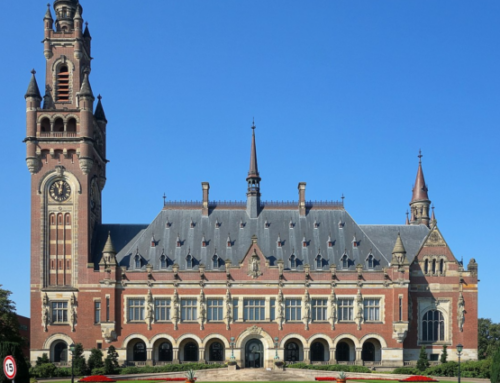
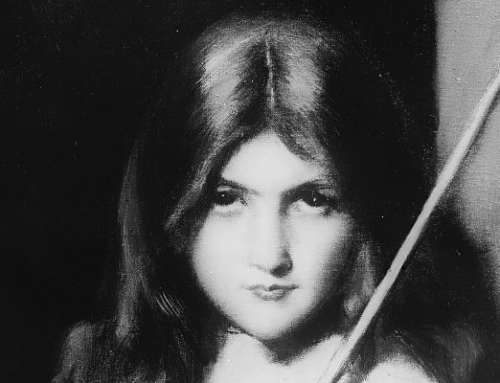
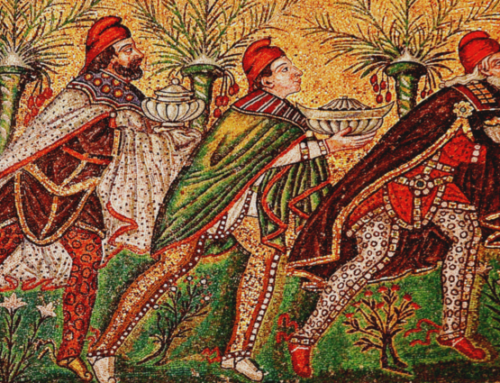
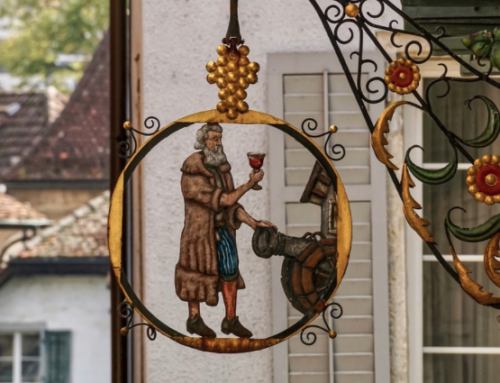
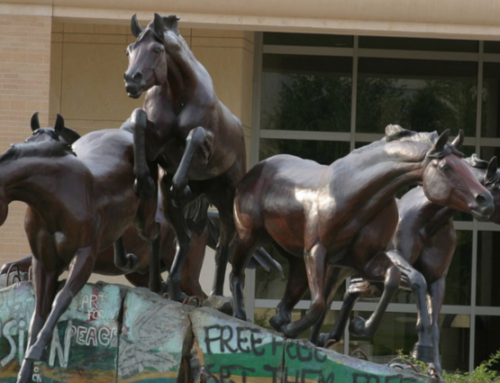
Leave A Comment